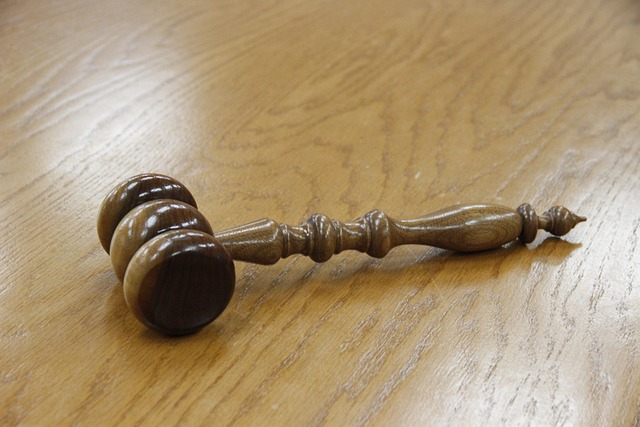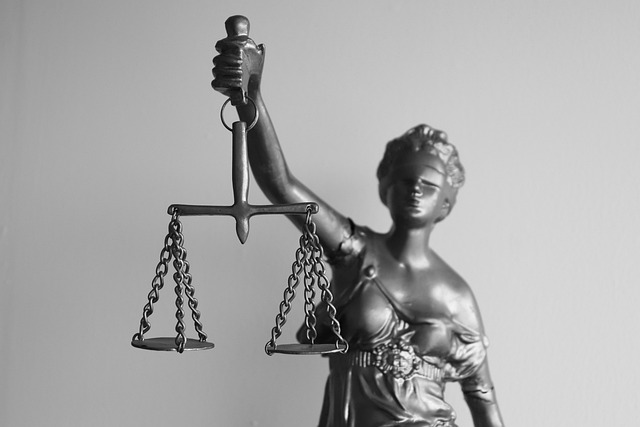Protecting intellectual property (IP) is paramount for businesses in competitive markets, as IP laws safeguard creative outputs from unauthorized use. When facing IP claims, a strategic defense strategy is essential, involving evidence gathering, legal analysis, and expert testimony to prove non-infringement. Specialized attorneys are crucial for navigating complex patents, trademarks, and copyrights, leading to favorable outcomes in high-stakes cases. Understanding real-world case studies enhances defenses against allegations, showcasing the importance of IP law knowledge in protecting economic interests from potential crimes.
“Unraveling the complexities of Defending Against Intellectual Property Claims requires a deep dive into the world of litigation types. This comprehensive guide explores the intricate balance between protecting valuable intellectual property (IP) and navigating legal challenges. From understanding foundational IP laws to delving into specific cases like patents, trademarks, and copyrights, we dissect common infringement allegations and their defenses. Additionally, we examine the court’s pivotal role in resolution and enforcement, backed by compelling case studies.”
- Understanding Intellectual Property (IP) Laws and Their Protection
- Common Types of IP Litigation: Patents, Trademarks, and Copyrights
- Defending Against Infringement Allegations: Strategies and Defense Mechanisms
- The Role of Courts in IP Disputes: Resolution and Enforcement
- Case Studies: Real-World Examples of Successful IP Litigation Defense
Understanding Intellectual Property (IP) Laws and Their Protection

Understanding Intellectual Property (IP) laws is paramount for businesses and individuals aiming to protect their creative and innovative outputs in today’s competitive markets. IP protection encompasses trademarks, copyrights, patents, and trade secrets, among others. These legal frameworks ensure that original works of authorship, inventions, brand identities, and proprietary information are safeguarded against unauthorized use or replication. By establishing clear ownership rights, IP laws foster a culture of innovation, enabling creators to defend their ideas and achieve extraordinary results without fear of infringement.
Defending against intellectual property claims is a critical aspect of managing risk in any business venture. Given the intricate nature of IP protections, seeking specialized legal counsel is advisable for navigating disputes effectively. General criminal defense attorneys may offer foundational guidance but often lack the depth of knowledge required to address the nuanced complexities of IP law. For startups and established enterprises alike, consulting with experts in intellectual property law can prove invaluable in protecting against infringement claims and safeguarding the future of their creative endeavors within philanthropic and political communities.
Common Types of IP Litigation: Patents, Trademarks, and Copyrights

In the realm of intellectual property (IP) litigation, patents, trademarks, and copyrights are among the most common types of disputes. These legal battles often involve complex issues related to innovation, brand identity, and creative works. When corporate and individual clients face defending against intellectual property claims, they enter a high-stakes arena where the outcome can make or break their business.
Each type of IP litigation presents unique challenges. Patents protect inventions, ensuring inventors have exclusive rights to their innovations for a limited period. Trademarks safeguard distinctive marks, preventing others from using similar signs, symbols, or designs that could confuse consumers. Copyrights, on the other hand, shield original works of authorship, including literary, artistic, and musical creations. Litigants involved in these cases often seek winning challenging defense verdicts, which require meticulous legal strategies and a deep understanding of IP laws to safeguard their rights and interests.
Defending Against Infringement Allegations: Strategies and Defense Mechanisms

When faced with intellectual property claims, defending against infringement allegations requires a strategic approach. The first step is to gather comprehensive evidence to prove that the accused product or service does not infringe on any existing patents, trademarks, or copyrights. This involves meticulously examining the nature of the alleged infringement, comparing it to the original IP, and identifying any material differences. Legal teams should also be prepared for high-stakes cases where wealthy corporations or influential philanthropic and political communities are involved, ensuring their arguments are robust enough to withstand intense scrutiny.
Effective defense mechanisms include challenging the validity of the plaintiff’s claims through detailed legal analyses and expert testimony. Additionally, negotiating settlements can be a strategic move, especially in non-high-stakes cases, to avoid lengthy jury trials that may cause significant reputational damage. For complex matters, employing specialized IP attorneys who understand the nuances of patent law, trademark regulations, or copyright doctrines is crucial. These professionals can navigate the legal landscape, crafting robust defenses tailored to each unique infringement allegation.
The Role of Courts in IP Disputes: Resolution and Enforcement

Courts play a pivotal role in resolving and enforcing intellectual property (IP) disputes, which often involve complex legal landscapes. When defending against intellectual property claims, the judiciary ensures that IP rights are protected while fostering a fair and just environment for all stakeholders. In high-stakes cases, where white-collar defense strategies come into play, courts must navigate intricate issues related to patent infringement, copyright violations, and trademark disputes. The enforcement of IP laws is crucial not only for individuals and businesses but also for the overall health of the philanthropic and political communities that rely on innovative ideas and creations.
Through meticulous case management and interpretations of IP laws, courts contribute to the evolution of legal precedents. This process enables businesses and entrepreneurs to better understand and safeguard their intellectual property rights. By efficiently resolving disputes, the judiciary facilitates the growth of a robust innovation ecosystem, where creativity thrives while ensuring that those who violate IP are held accountable, ultimately promoting a culture of responsible invention and expression.
Case Studies: Real-World Examples of Successful IP Litigation Defense

In the realm of intellectual property (IP) litigation, real-world case studies offer invaluable insights into successful defense strategies. For instance, consider a leading technology company facing patent infringement suits over its groundbreaking AI algorithms. Through meticulous legal research and expert witness testimony, the defense team demonstrated that the accused algorithms were not novel but rather evolved from existing open-source code, freely available to the public. This strategy not only highlighted the lack of originality but also exposed potential licensing issues in the plaintiff’s own practices, leading to a favorable settlement.
Another compelling example involves a pharmaceutical company battling copycat drug manufacturers. The defense focused on the intricate process of drug development and approval, presenting extensive documentation to prove that the accused products failed to meet the stringent requirements set by regulatory bodies. By emphasizing the complexity and cost-intensiveness of legitimate drug creation, the company achieved extraordinary results, successfully protecting its intellectual property rights and safeguarding its economic interests against white collar and economic crimes.
Understanding intellectual property (IP) laws is paramount for businesses to protect their innovative ideas, unique brands, and creative works. By familiarizing themselves with various litigation types, such as patent, trademark, and copyright disputes, companies can proactively defend against IP infringement allegations. This involves employing strategic defense mechanisms, leveraging court resolutions, and enforcing their rights effectively. As demonstrated in the included case studies, successful navigation of IP litigation requires a comprehensive approach, ensuring businesses not only protect their assets but also thrive in a competitive marketplace.






